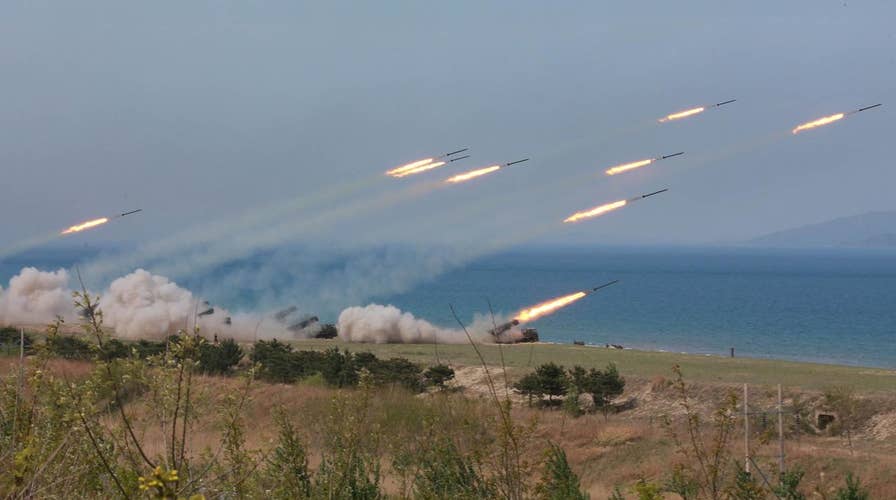North Korea's nuclear ambitions a top concern
Insight from retired 4 star Admiral Robert Natter, former commander of the U.S. 7th Fleet
The U.S.-delivered THAAD anti-ballistic missile system being installed in South Korea is set to be operational in a “couple of days,” as continued North Korean saber-rattling stirs fears of hostilities breaking out in the region and a U.S. carrier strike group steamed into “striking range” of the rogue state.
The USS Carl Vinson strike group had entered the Philippine Sea east of Okinawa on Wednesday and was continuing to steam north, Adm. Harry Harris, commander of the U.S. Pacific Command, told the House Armed Services Committee. Harris said that despite the strike group’s close proximity to North Korea, despot Kim Jong Un’s regime did not have a missile that could legitimately threaten U.S. ships.
NORTH KOREA'S WEAPONS PROGRESS A TOP CONCERN AS U.S. SENATORS HAVE RARE BRIEFING
“The weapons that North Korea would put against the Carl Vinson strike group are easily defended by the capabilities resident in that strike group,” Harris said.
He added: “If it flies, it will die, if it's flying against the Carl Vinson strike group.”
"If it flies, it will die."
VIDEO: WASHINGTON WORKS ON UNIFYING STRATEGY TOWARDS NORTH KOREA
Harris was more concerned, however, about the potential for North Korea to develop the means to strike Hawaii with a missile. Though he said that U.S. ballistic missile defense is “sufficient to protect Hawaii today,” he did allow the system could be overwhelmed in an attack from North Korea.
“We can and need to do more,” he said.
Harris placed the blame squarely on China for North Korea’s rise into a potential nuclear threat.
“The fact remains that China is as responsible for where North Korea is today as North Korea itself,” said Harris, adding that 80 percent of the North Korean economy was dependent on China, which the Trump administration has been increasingly leaning on as they seek a diplomatic solution to the current conflict.
Kim Jong Un’s erratic, provocative behavior was particularly troubling because, Harris said, he’s “not afraid to fail in public.” But Harris said his role in the matter was simply to reduce tensions by providing “credible combat power.”
The Associated Press contributed to this report.

